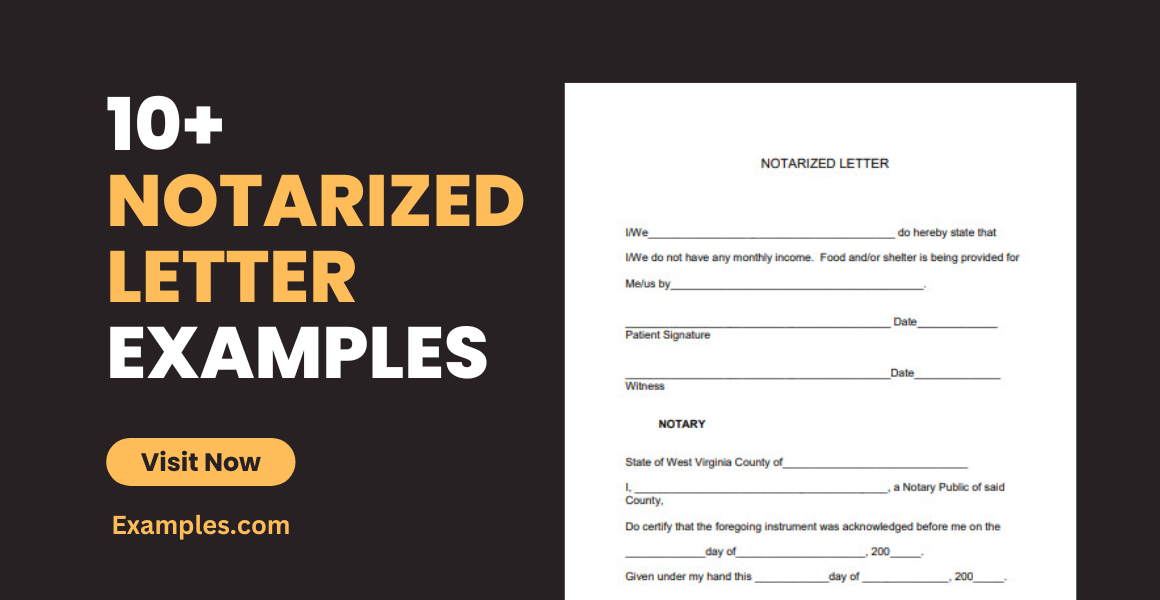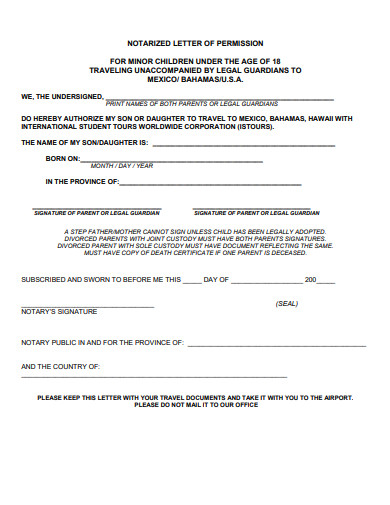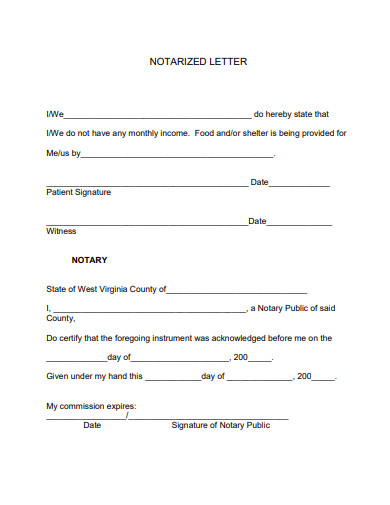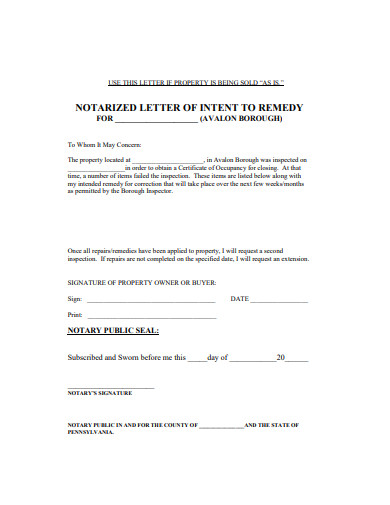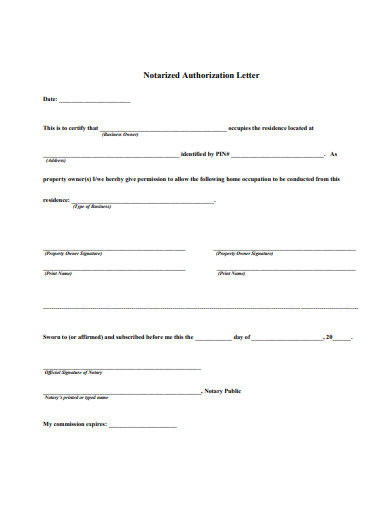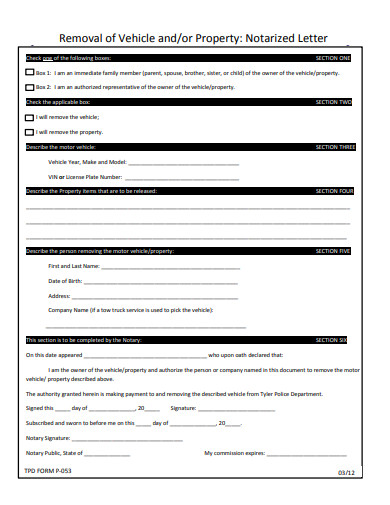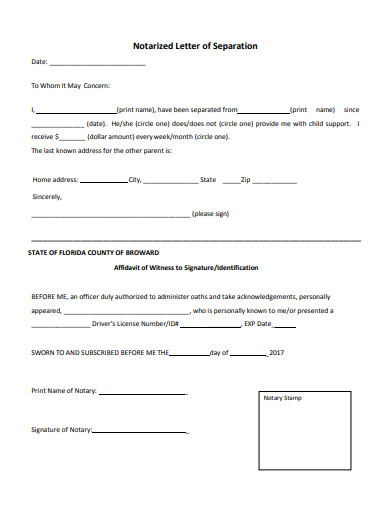10+ Notarized Letter Examples to Download
Whether we’re into business or not, our every transaction serves as an opportunity for frauds to make money. Fortunately for us, notaries public exist. They ensure that each of our transactions is well-protected with signatures and the attendance of a legal and neutral party. Their functions are highly applicable in agreements, legal contracts, and other documents that involve permissions, authorizations, and acknowledgment. Good examples of these are guardianship agreements, parental consents, proof residence or affidavit of residency, and professional statements. If you’re looking to notarize your business letter or personal authorization letter, you shouldn’t miss our article and examples below! They can guide you in doing so without any hassle!
10+ Notarized Letter Examples
1. Notarized Letter
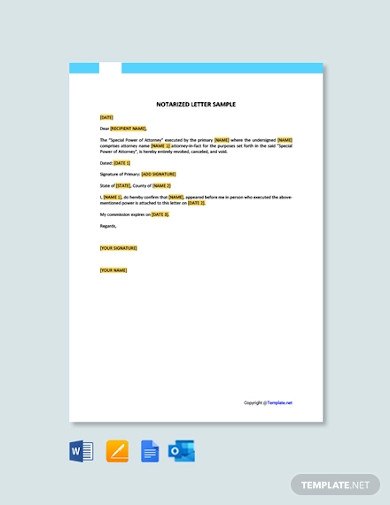
2. Notarized Letter Template for Residency
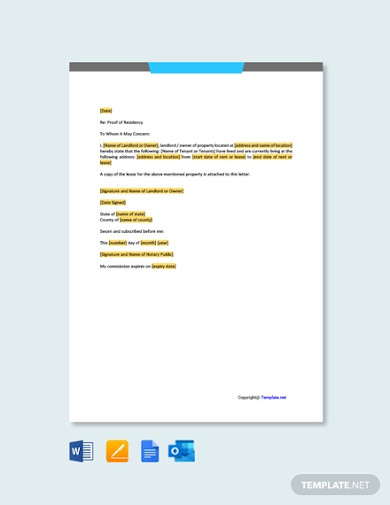
3. Notarized Letter Template for Child Travel
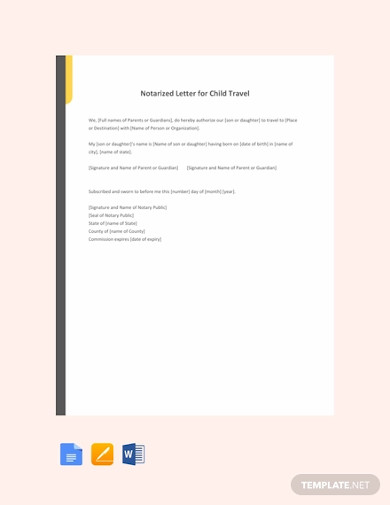
4. Sample Notarized Letter of Authorization
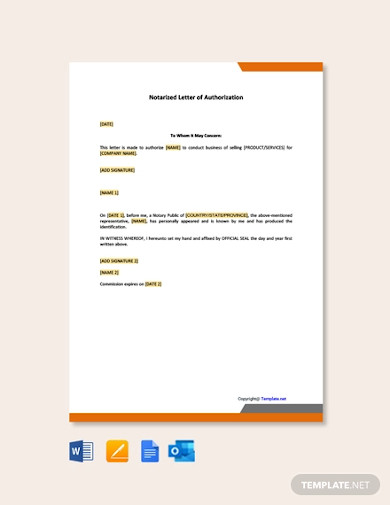
5. Personal Notarized Letter
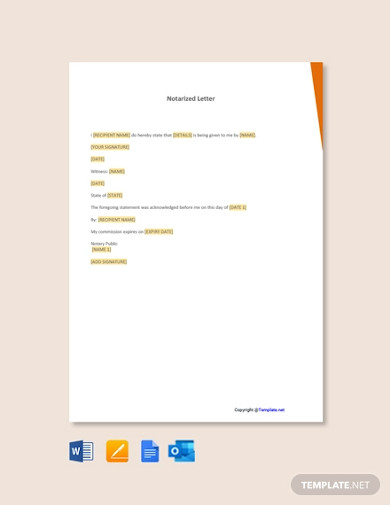
6. Notarized Letter of Permission
7. Sample Notarized Letter
8. Notarized Statement Letter
9. Notarized Authorization Letter
10. Vehicle Removal Notarized Letter
11. Notarized Letter of Separation Example
What Is a Notarized Letter?
A notarized letter is a document certified by a notary public, confirming the authenticity of the signer(s)’ identities and their understanding and voluntary signing of the document. The notary witnesses the signing, then stamps or seals the letter, making it legally credible. Such letters are commonly used in legal, financial, and property transactions to ensure validity and enforceability.
What Notaries Cannot Do
Notaries, just like any other legal personnel or other jobs, in general, have limitations to their power or authority. Here are some of the common prohibitions, according to the American Society of Notaries:
1. A notary cannot certify a document if one or all of the signers are physically absent.
2. Incomplete documents prohibit a notary from conducting validations.
3. A notary cannot notarize a photocopied, faxed, or scanned documents.
4. A notary should not validate a certain undertaking’s process document if he or she is among the participants.
5. A notary cannot notarize an illegal transaction.
6. A notary cannot notarize a document if he or she knows that some information is untrue.
How To Notarize a Letter
A notarized letter is a document whose authenticity is verified by a notary public, an authorized official who confirms the identity of the signatories and witnesses their signatures. This process ensures that the document is legitimate and the signatures are genuine. The notary public’s official stamp or seal on the document further certifies its validity, making the notarized letter a trusted and legally recognized paper. Notarization adds a layer of security and credibility, crucial for many formal transactions and legal procedures.
1. Go To See a Notary
In the 2017 census of the National Notary Association (NNA), there were 4.4 million notaries in the United States. Since becoming a notary does not require an individual to become a lawyer, it is safe to say that they can operate anywhere, not just in courthouses. If you want to see a notary, you can check out the following places:
– Banks
– Universities
– Registry Offices
– Military Bases
– Town Hall or City Hall
– Courthouse
– Printing Stores and Shipping Stores
– Online Platforms
2. Verify Your Identity
Part of the notaries’ functions is to verify the identities of the people named in a document. For this reason, you have to make yourself ready to prove yours. To do so, you can present your driver’s license, passport, or other government-issued IDs. Take note that the requirements may vary in the states.
3. Imprint Signature
Another function of the notaries is to witness with their very own eyes that the signatures are authentically imprinted by the right people. This is why you must not bring a document that’s already been signed. If you’ve unintentionally signed your letter ahead of time, create another unsigned copy right away.
4. Seal the Document
All the fifty states of the U.S. require a notary to finalize his or her notarization with a stamp. Failure to fix the mark will not make any document legally notarized. Usually, these stamps are placed near the notary signature. Stamping on a text or signature can negate the effect of notarization, making it a big no-no. In another aspect, notarization has no expiration, as long as the seal used in stamping is still recognized as official.
5. Pay the Fees
The notarization fee varies depending on the state where you got your document notarized. In Iowa, notaries can set their own service prices. The service also depends on the kind of process document or letter that you’re trying to have notarized. Mortgage notes, for example, are more expensive than typical documents. According to Justin Pritchard of The Balance, the average cost range of notarization is $0.25 to $20.
FAQs:
What are the different types of notarial acts?
There are four types of notarial acts. These include acknowledgments, jurats, oaths, and copy certifications.
Acknowledgments – This refers to the notarial act that gives verification to the signers’ recognition to a certain document.
Jurats – This notarial act describes the notary’s attestation to the signers’ declaration to have taken an oath.
Oaths – In this type of notarial act, notaries testify the validity of statements and pledges.
Certifications – This notarial act ratifies the signers’ possession of a certain document.
What documents need notarization?
The most common documents that require verifications from the notary public are Power of Attorney (POA), medical documents, trusts, contract for deeds, affidavit forms, and sworn statements.
What are the online notarization platforms that are approved by the NNA?
The NNA-approved online notarization platforms consist of the following:
– DocVerify
– Nexsys
– SIGNiX
– Safedocs
– Notarize
– NotaryCam
– Pavaso
Business transactions require careful measures. Documents like agreements or contracts indeed have their own way of eliminating risks or avoiding conflicts through their respective dispute resolution policies. However, they do not guarantee the safety of the document from fraudulent activities. This is where notarization comes in. Through it, the protection of a certain undertaking is doubled by verifying the signers’ identities and witnessing the signing of documents.
They do have limitations, but these only make the activity process’s safeguard tighter. Speaking of the process, notarization is very simple, with a service price that perfectly suits its needs for efforts. If you think your letter is worthy of utmost security, do not waste time and learn how to notarize it right away!


